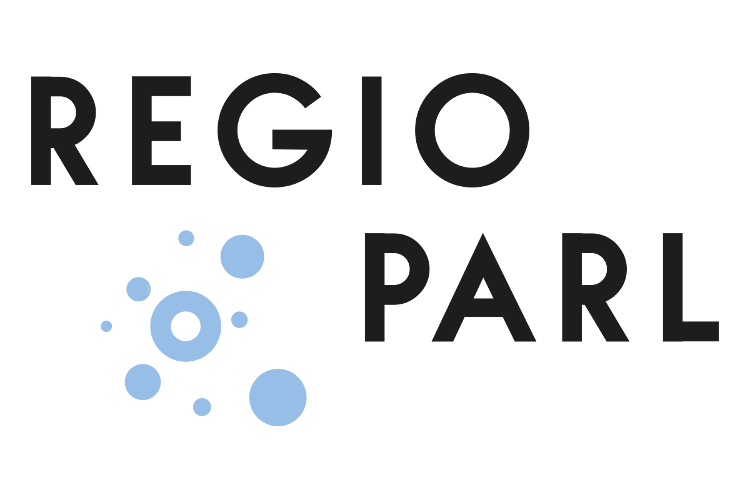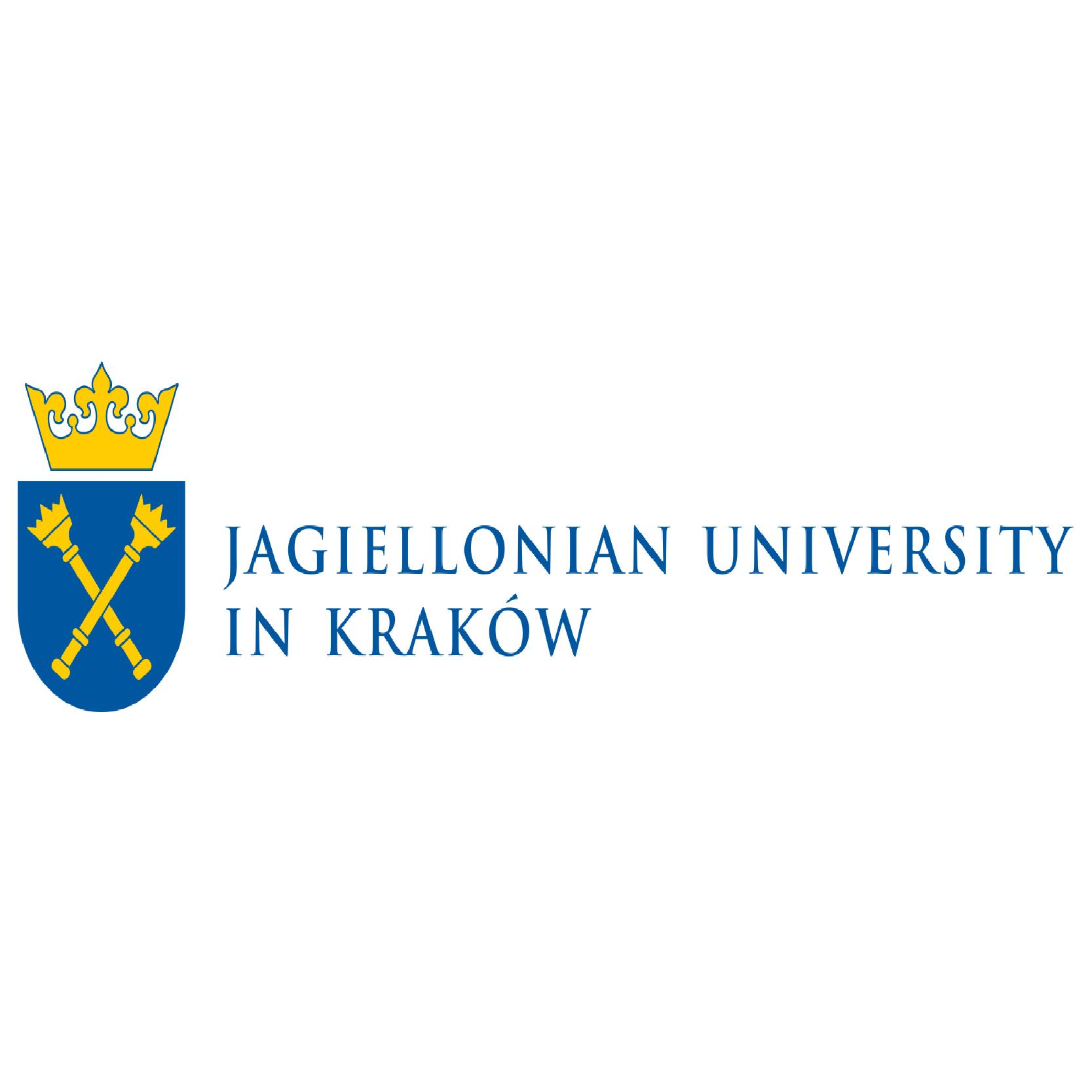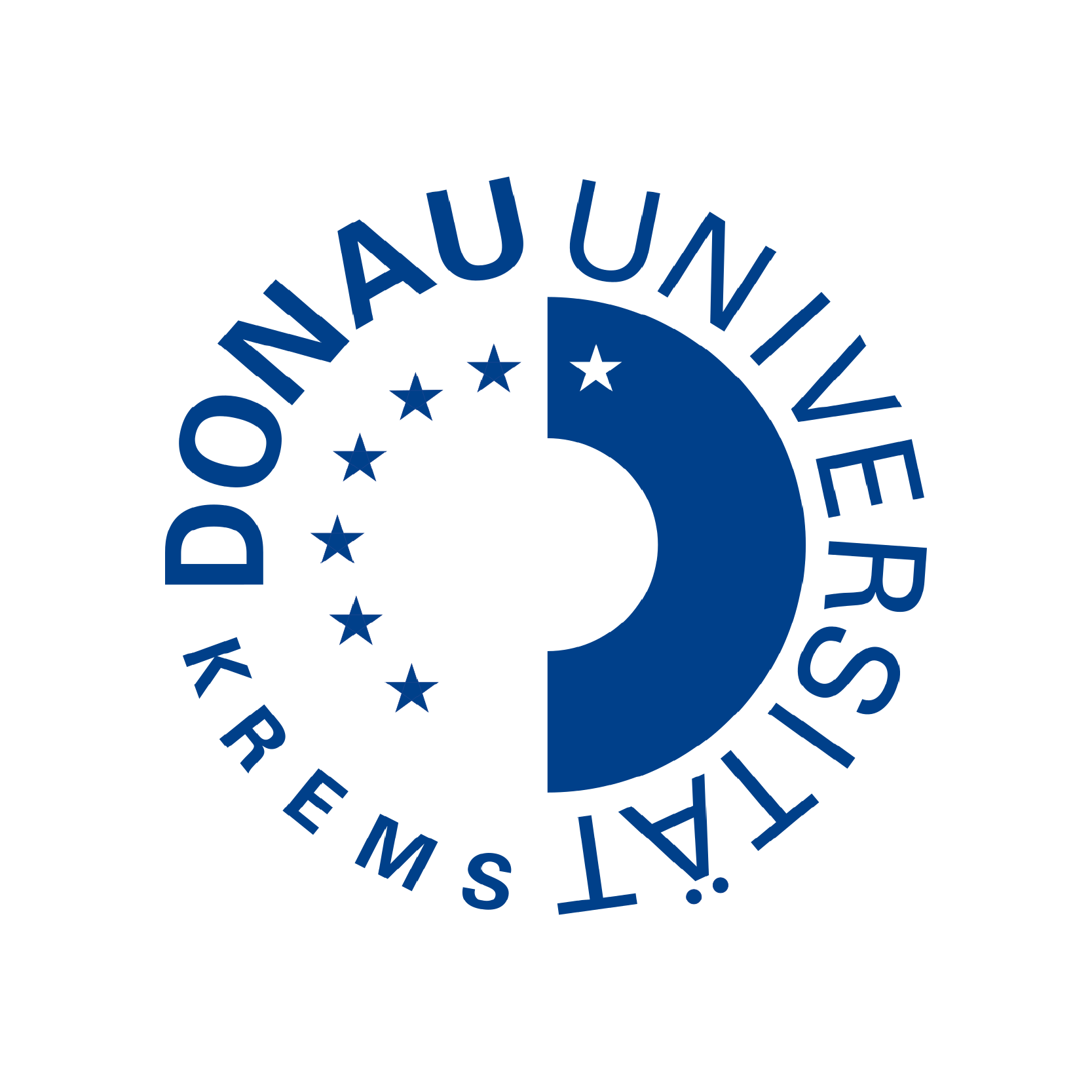May 28 & 29, 2020
Parliamentary Voices on the Future of Europe
This digital conference is co-organized by Jagiellonian University Kraków, Institute of European Studies, and Danube University Krems, Department for European Policy and the Study of Democracy
in cooperation with the European Democracy Lab at the European School of Governance and other partners under the framework of the research project REGIOPARL | Regional Parliaments Lab
———————————————————————————————————————————
Governance in Europe is built on a diverse multi-level parliamentary system, making parliaments at all levels – European, national, and subnational – key actors in the functioning of any democratic political process involving the future of Europe. This is why parliaments take center stage in our two-day digital conference “Parliamentary Voices on the Future of Europe”. We brought together academics and policy makers from all political levels – European, national, and subnational – in order to encourage an exchange of views between politics and academia.
The event touched upon various issues of parliamentary involvement in the European Union, such as the Early Warning Mechanism on Subsidiarity Control, parliamentary scrutiny of European policies and Europeanisation of national and subnational parliaments. Please find a more detailed programme below.
Speakers
Prof. Gabriele Abels
Since 2007, Gabriele Abels is Professor for comparative politics and European integration at the University of Tübingen. She holds a Jean Monnet Chair since 2011 and is Director of the the Jean Monnet Centre of Excellence PRRIDE since 2015. From 2012 to 2015 she was chairwoman of the German political science association (DVPW). She was visiting fellow at the University of Osnabrück, the European University Institute in Florence, the University of Missouri-St.Louis, USA, St. Petersburg University, Russia, and Harvard University, USA.
Gaby Bischoff
Gabriele Bischoff is serving as a Member of the European Parliament for the Social Democratic Party of Germany (SPD) since 2019. She has since been serving on the Committee on Constitutional Affairs and the Committee on Employment and Social Affairs. In addition to her committee assignments, she is part of the Parliament’s delegation for relations with Mercosur. She is also a member of the Working Group on the Conference on the Future of Europe. From 1991 until 2000, Gabriele Bischoff worked at Germany’s largest trade union, IG Metall, on gender equality issues. From 2000 to 2005, Bischoff worked as an advisor on social affairs at the Permanent Representation of Germany to the EU in Brussels before moving to the Federal Ministry of Labour and Social Affairs (BMAS) in Berlin as special advisor from 2006 to 2008. From 2008 Bischoff worked for the German Trade Union Confederation (DGB) in Berlin, where she led the trade union’s work on European policies. In that capacity, she was a member of the European Economic and Social Committee (EESC) in Brussels from 2009 until 2019. During her tenure, she served as president of the employees’ group from 2015.
Dr. Karolina Borońska-Hryniewiecka
Karolina Borońska-Hryniewiecka is assistant professor at the University of Wrocław and visiting fellow at Centre européen de sociologie et de science politique (CESSP) of the Sorbonne University.
Her research interests focus on the EU democratic deficit, EU institutional reform and the role of parliaments in EU governance. Her works appeared, among others, in the European Political Science Review, The Journal of Legislative Studies or the Polish Political Science Review. She lectured and conducted research at the European University Institute in Florence, Deusto University in Bilbao, Masaryk University in Brno and Sciences Po in Paris. She currently carries out her own research project entitled: “National parliaments as ‘multi-arena players’ in the EU?” financed by the Polish National Science Centre.
Prof. Peter Bursens
Peter Bursens is professor at the Department of Political Science of the University of Antwerp. He is senior member of the Politics and Public Governance research group and of the GOVTRUST Centre of Excellence. His research interests include Europeanization, federalism and democratic legitimacy of multilevel political systems. He teaches at BA, MA and Executive MA level on the topics of European integration, federalism, negotiations and EU decision-making. He holds a Jean Monnet Chair, focusing on the introduction of skills teaching in European Studies curricula.
Dr. Elisabeth Donat
Dr. Elisabeth Donat is a research associate and deputy head of the Department for European Policy and the Study of Democracy at Danube-University Krems. She previously worked as a research associate at the University of Salzburg, Innsbruck and Vienna in their respective institutes of sociology. She has conducted extensive trainings in methodology (qualitative and quantitative) that complete her portfolio. She has passed on her knowledge in more than 50 courses at the aforementioned universities and other colleges. As a research associate within the REGIOPARL project, she is responsible for the conception and execution of surveys with deputies of regional parliaments as well as the evaluation of their responses.
Daniel Freund
Daniel Freund is Member of the European Parliament and the Green Group’s negotiator for the Conference on the Future of Europe. He has been an MEP for The Greens/EFA since July 2019. Daniel Freund studied politics, economics and law in Leipzig, Paris and Washington. After working for the German Foreign Ministry and the EU institutions, he headed the European work of Transparency International for 5 years, working on the fight against corruption and publishing on issues such as transparency in legislation, conflicts of interest and lobbying. Since his election to the European Parliament in 2019, he is now continuing this work in Parliament. He is a member of the Committees on Constitutional Affairs and Budgetary Control. He is the Green Group’s negotiator for the Conference on the Future of Europe and chairman of the European Parliament’s cross-party working group on anti-corruption.
Eugen Freund
Eugen Freund is a former Austrian politician (Social Democratic Party) who served as a Member of the European Parliament (MEP) from 2014 until 2019. Freund had initially joined the country’s state broadcaster, ORF, in 1974. He then served as press secretary of the Federal Minister for Foreign Affairs and as press officer of the Austrian Information Service in New York between 1978 and 1984. He rejoined ORF in 1986 and, among other posts, was Washington correspondent and then presenter of the main evening news show until his retirement at the end of 2013.
Tobias Gotthardt
Tobias Gotthardt is member of the Bavarian parliament since 2018. He is Chairman of the Committee on Federal and European Affairs and Interregional Relations and Member of the Committee on State Budget and Financial Affairsas as well as Member of the governing board of the Bavarian Agency for Civic Education. Since 2020, Gotthardt is the parliamentary deputy of the Bavarian Minister of Europe and head of the Bavarian State Chancellery in the European Committee of the Regions.
Prof. Ulrike Guérot
Prof. Dr. Ulrike Guérot is the director of the Department for European Policy and the Study of Democracy at Danube-University Krems and is initator of the REGIOPARL research project. Ulrike Guérot worked, amongst others, in leading positions for different European think tanks and taught at universities in both Europe and the United States. She is the founder of the European Democracy Lab in Berlin, which attempts to develop innovative ideas for Europe.
Dr. Daniela Ingruber
Dr. Daniela Ingruber is a political scientist, media theorist, democracy and war researcher at Danube University Krems. In addition, she prepares journalists and NGO staff for work in conflict regions, and is a political and dramaturgic consultant for film projects. From 2012–16, she was visiting professor at the UN-mandated University for Peace (UPEACE) in Costa Rica, and later at the HHS in the Netherlands. Her central research topics are: democracy, peace and media.
Karl-Heinz Lambertz
Karl-Heinz Lambertz studied law in Belgium and Germany. He was Minister as of 1990 and later Minister-President of the German-speaking Community of Belgium from 1999 to 2014. Until September 2016, he held the function of President of the Parliament. From Then, Mr. Lambertz represented the German-speaking Community in the Belgian Senate. After the last elections, he became President of the Parliament a second time. In this quarter of a century, Karl-Heinz Lambertz has become a renowned expert for cross-border cooperation that constitutes a crucial topic for the smallest Belgian entity on both a bilateral level as well as in the framework of Euregio Meuse-Rhine and the Saarlorlux Euroregion.
On the European level, Karl-Heinz Lambertz is member of the Committee of the Regions (CoR) since 2001 and held the positon of its First Vice-President from February 2015 to July 2017. On July, 12th 2017, he was elected President of the CoR for two and a half years. Currently, he is still member of the bureau. He is also member of the Congress of Local and Regional Authorities of the Council of Europe since 2000 and its Vice-President since October 2016. From 2010 to 2017 and from 2020, he was President of the Association of European Border Regions (AEBR).
Prof. dr hab. Zdzisław Mach
Zdzisław Mach is professor of sociology, social anthropology and European Studies at the Jagiellonian University in Kraków, Poland. Founder of the Institute for European Studies at the Jagiellonian University, and one of the main authors of the European Studies curriculum in Poland. Dean of the Faculty of Philosophy (1993–1999), and the Faculty of International and Political Studies (2016–2019), Jagiellonian University where he also holds a Chair of the Society and Cultural Heritage of Europe at the Institute of European Studies and a UNESCO Chair in Education about the Holocaust.
His research interests cover issues such as nationalism, minorities and ethnicity, the development of European citizenship, migration, cultural construction of identities, collective memory and cultural heritage as well as the development of the idea of Europe. Professor Mach has been leading teams of researchers in the Polish National Science Centre and EU supported projects, including 6th Framework Programme as well as the Horizon 2020.
Prof. Dr. Andreas Maurer
Andreas Maurer is Professor for Political Science and European Integration at the University of Innsbruck. Since 2011 he is a member of the advisory board of the Observatory of Parliaments after the Lisbon Treaty (OPAL). From 2007 – 2011, he worked in the Secretariate of the Committee on International Trade (INTA) for the European Parliament. Among other things, he also was Detached National Expert to the European Parliament (Secretariat of the Committee for International Trade), Adviser to the European Constitutional Convention, and is member of the Academic Board of the Institut for European Politics in Berlin.
Dr. Sarah Meyer
Dr. Sarah Meyer is a research associate at Danube-University Krems and heads the REGIOPARL project. She previously worked on EU policy affairs at the Austrian Federal Chancellery. Sarah Meyer received a doctorate from the University of Vienna and completed a post-graduate program on European integration at the Institute for Higher Studies in Vienna. She has worked in different research projects (among others FP7, FWF) at the University of Vienna, Innsbruck and Amsterdam. Her research focus comprises the politicisation of European integration and migration through political parties and media discourse as well as the (institutional) development of the EU.
Dr. Eric Miklin
Eric Miklin is Associate Professor of Austrian Politics in Comparative European Perspective in the Department of Political Science and Sociology at the University of Salzburg. Miklin holds a Doctorate from the University of Vienna, Austria (2008). In addition, he was a scholarship recipient/junior researcher at the Institute for Advanced Studies Vienna from 2004-2008, where he completed the post-graduate program European Integration. Prior to joining the University of Salzburg, Eric Miklin was Postdoc Fellow at the Free University Amsterdam, The Netherlands, where he was engaged in the integrated research project Reconstituting Democracy in Europe (www.reconproject.eu) from 2008 to 2010. His recent publications and conference presentations focus on the comparative analysis of EU-related policy-processes in Austria and other member states and especially on the role of (national) parliaments and parties in this regard.
Sophia Russack
Sophia Russack is Researcher in the Institutions unit at CEPS. Her main research interests lie in the fields of EU institutional architecture, decision-making processes and institutional reform, with a particular focus on the European Commission. She covers topics such as the European Parliament elections and the lead candidate (Spitzenkandidaten) process; EU democracy and accountability; and the concept of differentiated European integration.
Dr. Marcin Zubek
Marcin Zubek holds a Ph.D. in political science and an Assistant Professor at the Institute of European Studies, Jagiellonian University (JU), where he also obtained his MA in European Studies 2009. His academic interests revolve around peacebuilding processes in the post-conflict environment as well as parliamentary control of foreign and security policy. His most recent publication: The European Parliament and the conflicted EU Neighbourhood – Extinguishing the “Ring of Fire”, or Letting It Burn? In: M. Góra, M. Zubek, N. Styczyńska (eds.), Contestation of EU Enlargement and European Neighbourhood Policy. Actors, Arenas, Arguments (Copenhagen: DJØF Publishing, 2019: 2019-230.




